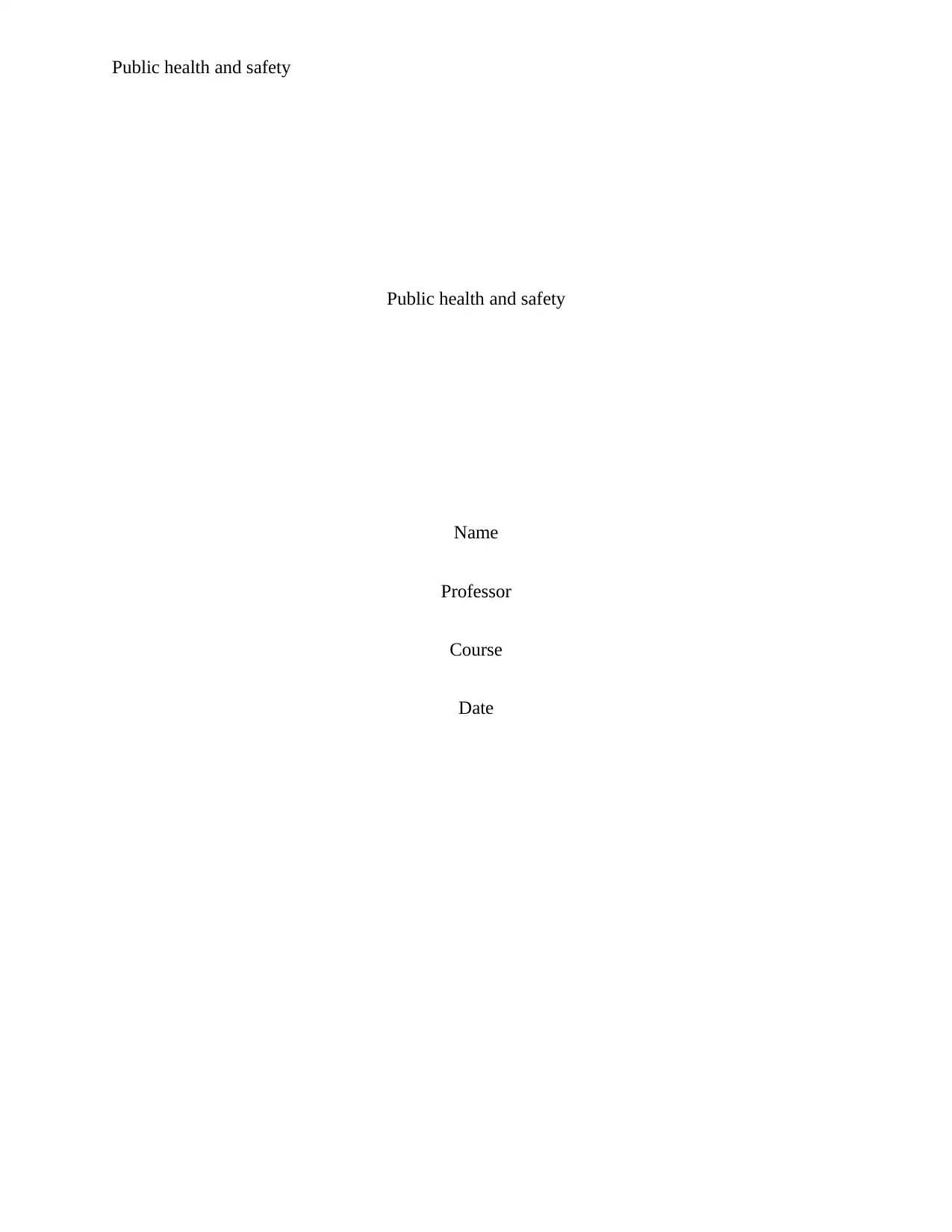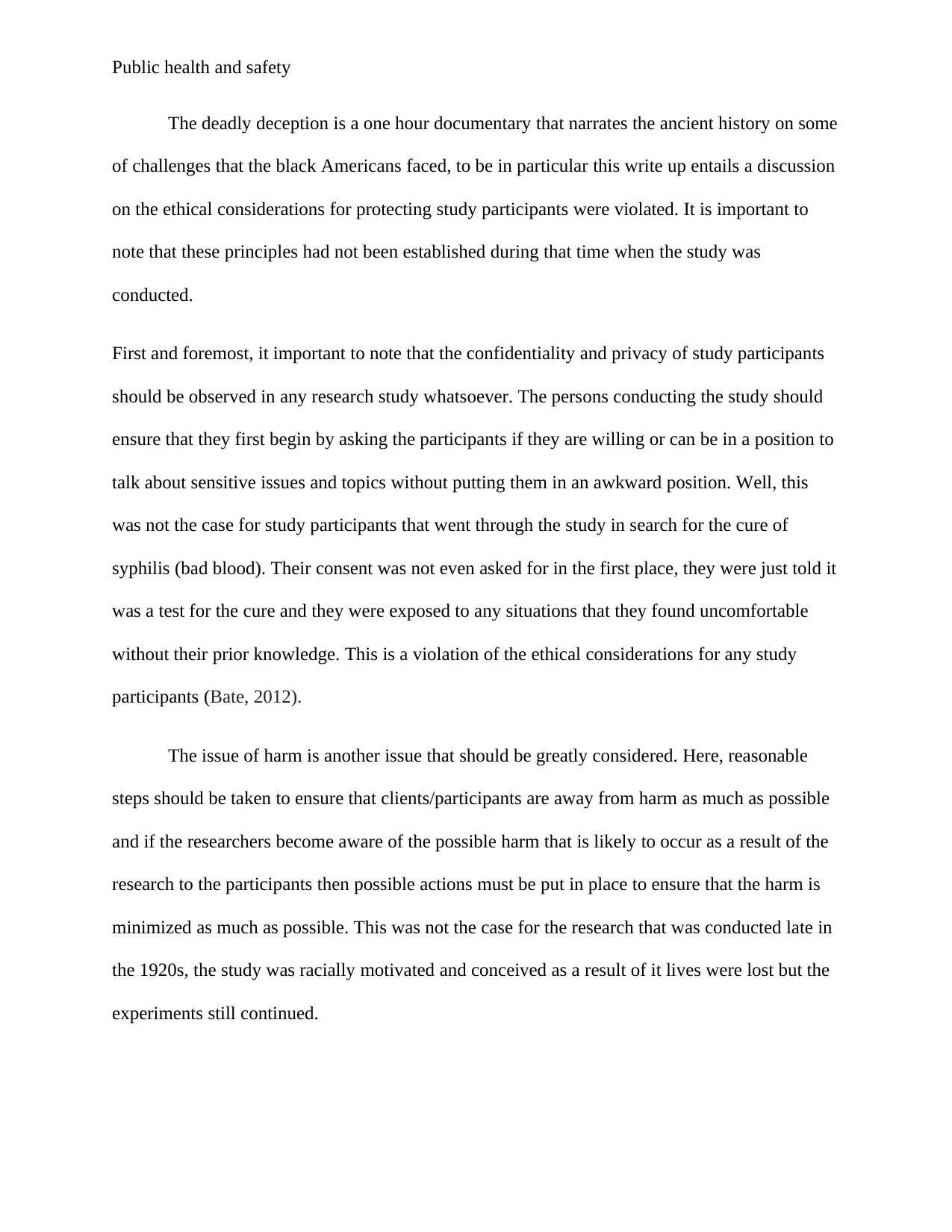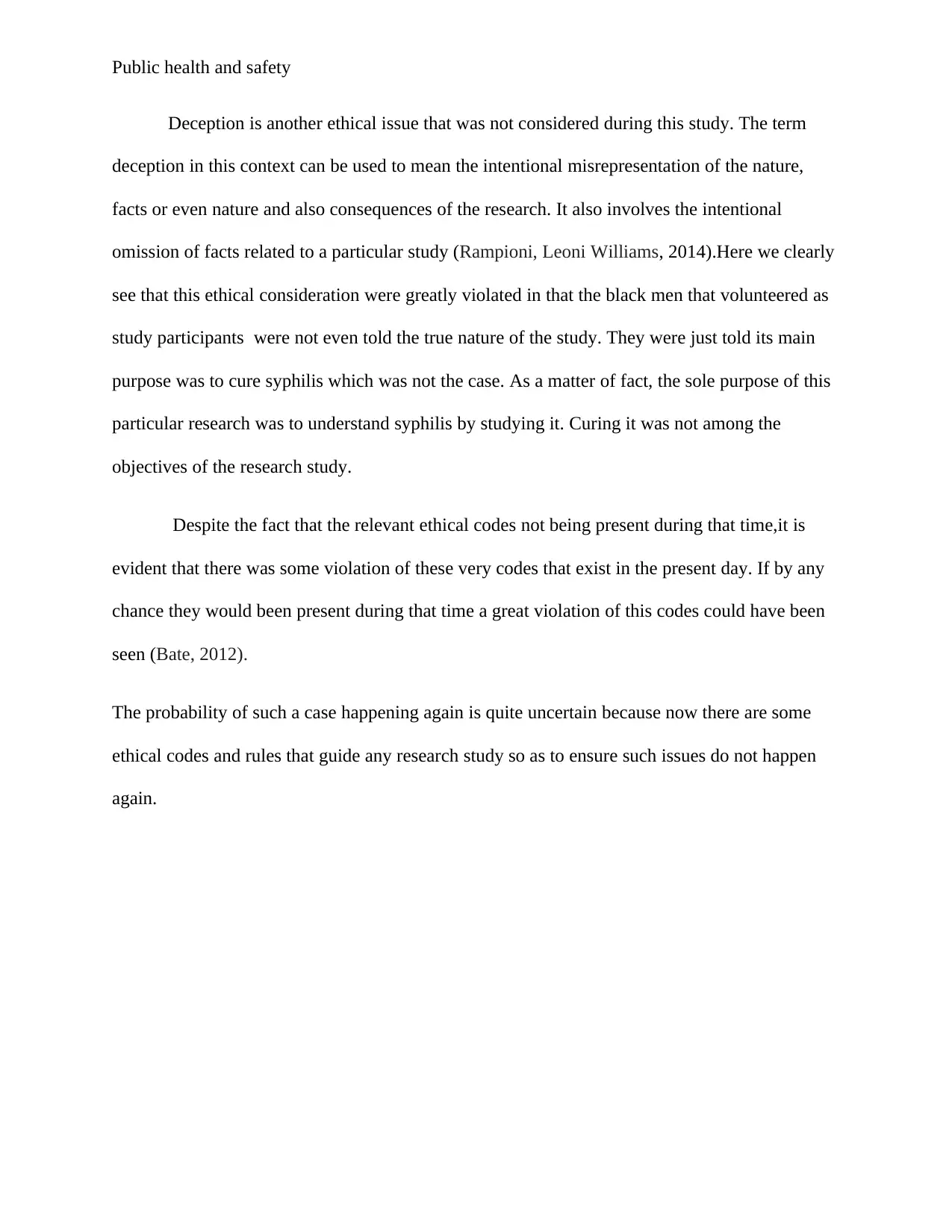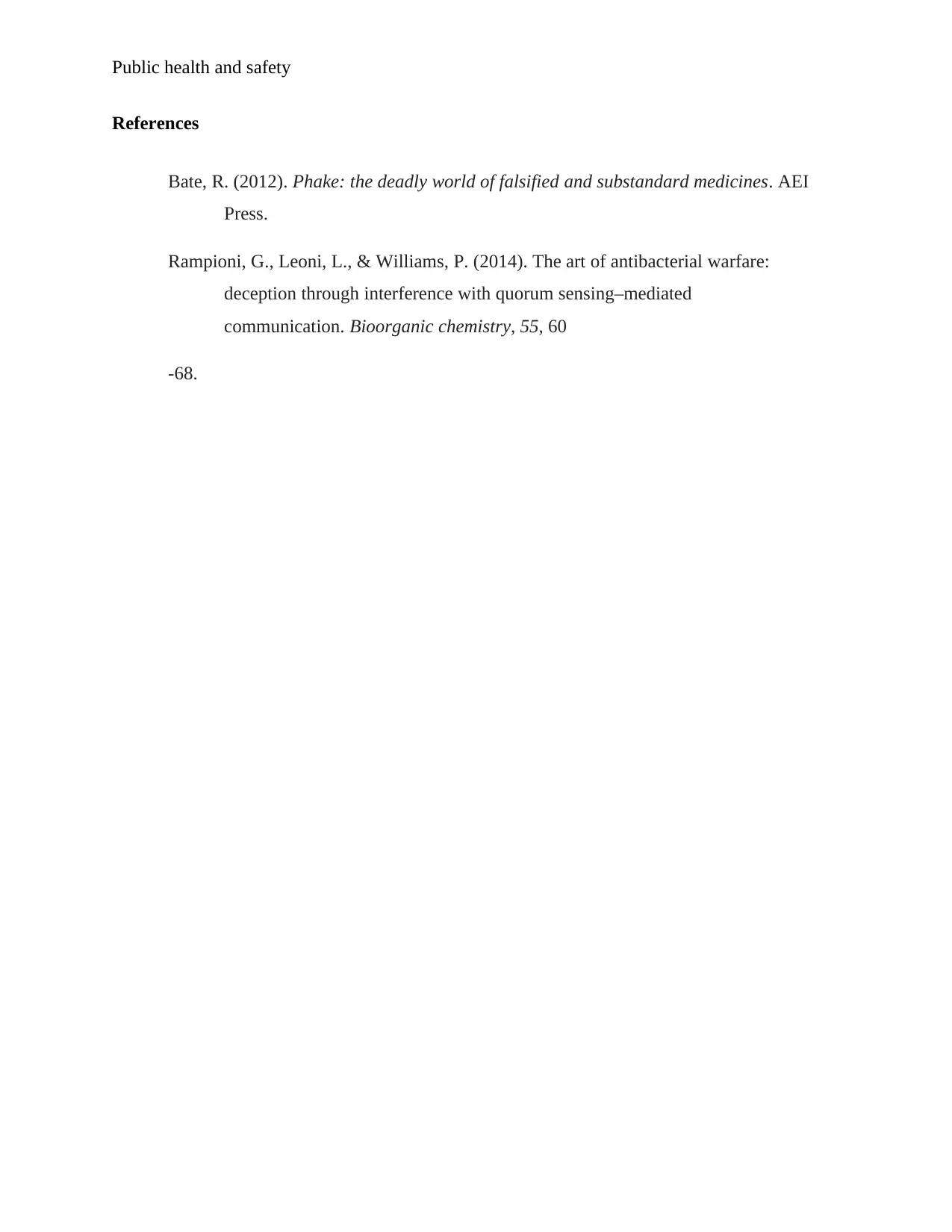Analyzing Ethical Violations in Public Health Research: Assignment 5
VerifiedAdded on 2023/05/29
|4
|653
|468
Report
AI Summary
This report analyzes the ethical violations presented in the documentary "The Deadly Deception," focusing on the Tuskegee Syphilis Study. The assignment explores how the study violated ethical considerations for protecting study participants, including breaches of confidentiality, lack of informed consent, and the intentional deception of participants about the true nature of the study. The report highlights the importance of ethical guidelines in research, emphasizing the potential for harm and the necessity of protecting participants' rights and well-being. The assignment also considers whether a similar study could be repeated today, given the current ethical codes and regulations, and whether such violations could ever be justified. The study's racially motivated nature and the loss of life due to the unethical practices are also discussed.
1 out of 4











![[object Object]](/_next/static/media/star-bottom.7253800d.svg)